ADBC Summit 2016
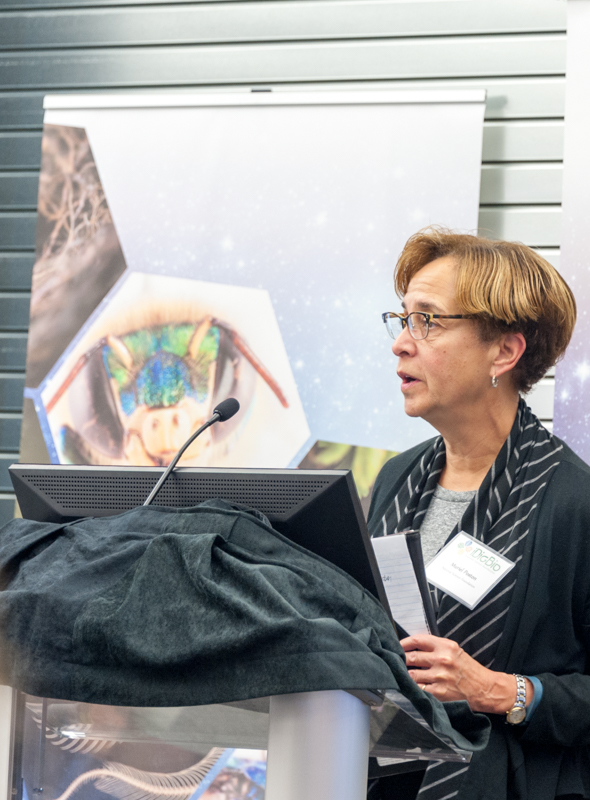 The Advancing Digitization of Biological Collections Annual Summit, hosted by iDigBio, took place in Chattanooga, Tennessee, at TechTown November 1-3, 2016.
The Advancing Digitization of Biological Collections Annual Summit, hosted by iDigBio, took place in Chattanooga, Tennessee, at TechTown November 1-3, 2016.
 The Advancing Digitization of Biological Collections Annual Summit, hosted by iDigBio, took place in Chattanooga, Tennessee, at TechTown November 1-3, 2016.
The Advancing Digitization of Biological Collections Annual Summit, hosted by iDigBio, took place in Chattanooga, Tennessee, at TechTown November 1-3, 2016.
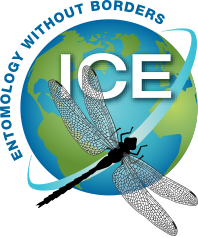 iDigBio had a blast at ICE XXV International Congress of Entomology, held September 25-30, in Orlando, Florida.. The event brought together thousands of scientists from around the world under the theme “Entomology without Borders.” iDigBio staff participated in two symposia, the Insect Expo, and hosted the iDigBio booth in the ICE Exhibit Hall.
iDigBio had a blast at ICE XXV International Congress of Entomology, held September 25-30, in Orlando, Florida.. The event brought together thousands of scientists from around the world under the theme “Entomology without Borders.” iDigBio staff participated in two symposia, the Insect Expo, and hosted the iDigBio booth in the ICE Exhibit Hall.
Contributed by: Teresa Iturriaga, Rhianna Baldree, Alex Kuhn, Andrew N. Miller
University of Illinois, Illinois Natural History Survey, 1816 South Oak Street, Champaign, IL 61820-6970
We forget because remembering everything is impossible.
We also forget because remembering can be painful and raise too many questions that have no clear answers.
Such is the case regarding many ghost towns. They remind us of the transience of everything.
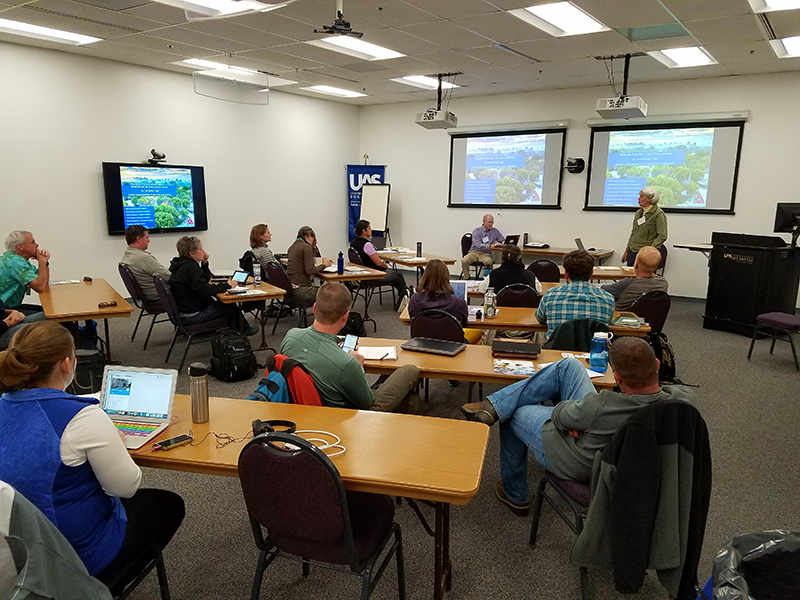
-- Contributed by Elizabeth R. Ellwood, Florida State University, with Henry L. Bart, Jr., Michael H. Doosey, Dean K. Jue, Justin G. Mann, Gil Nelson, Nelson Rios, Austin R. Mast
Citizen scientists participate in a host of activities that advance scientific research. These individuals are not trained scientists, but their contributions to research enable scientists to scale up their research across taxa and geographies. Read more here.

-- Contributed by Jillian Goodwin, iDigBio, interviewing Sam Droege, USGS Patuxent Wildlife Research Center
Sam Droege heads the USGS Native Bee Inventory and Monitoring Lab based at the Patuxent Wildlife Research Center, Maryland, and is working with other researchers to assess the status of bees nationwide.

This was originally a guest post from PLOS Ecology Reporting Fellow, Caitlin McDonough, on research from the Ecological Society of America Scientific Meeting in Ft. Lauderdale, Florida, August 7-11, 2016 on the PLOS Ecology Community blog.
-- Contributed by Katie Peterson, PhD Student, Parent Lab, Department of Biological Sciences, University of Idaho
I am currently a third year PhD student at the University of Idaho in the Parent Lab. The Parent Lab studies the biodiversity and evolution of organisms that have recently colonized novel, “blank slate”, environments on islands....read more here.
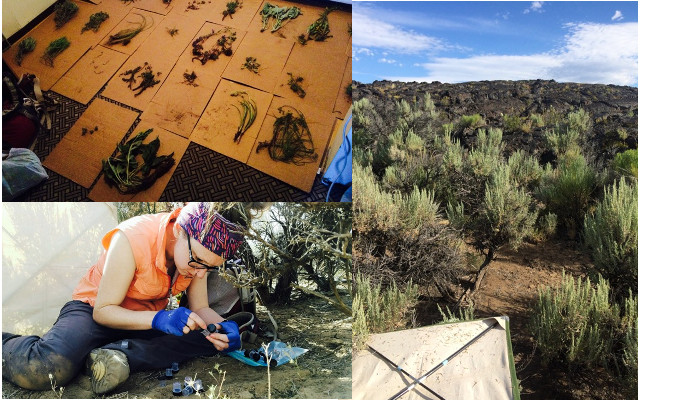
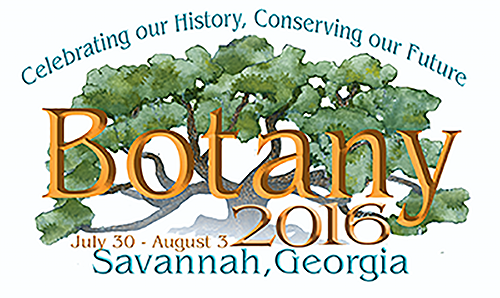 For the third straight year, iDigBio hosted a full-day workshop on research methods using digitized herbarium specimen data at the annual Botany conference (Botany 2016, Savannah, GA), sponsored by the Botanical Society of America and its affiliated societies. After successful workshops on Georeferencing (Bo
For the third straight year, iDigBio hosted a full-day workshop on research methods using digitized herbarium specimen data at the annual Botany conference (Botany 2016, Savannah, GA), sponsored by the Botanical Society of America and its affiliated societies. After successful workshops on Georeferencing (Bo
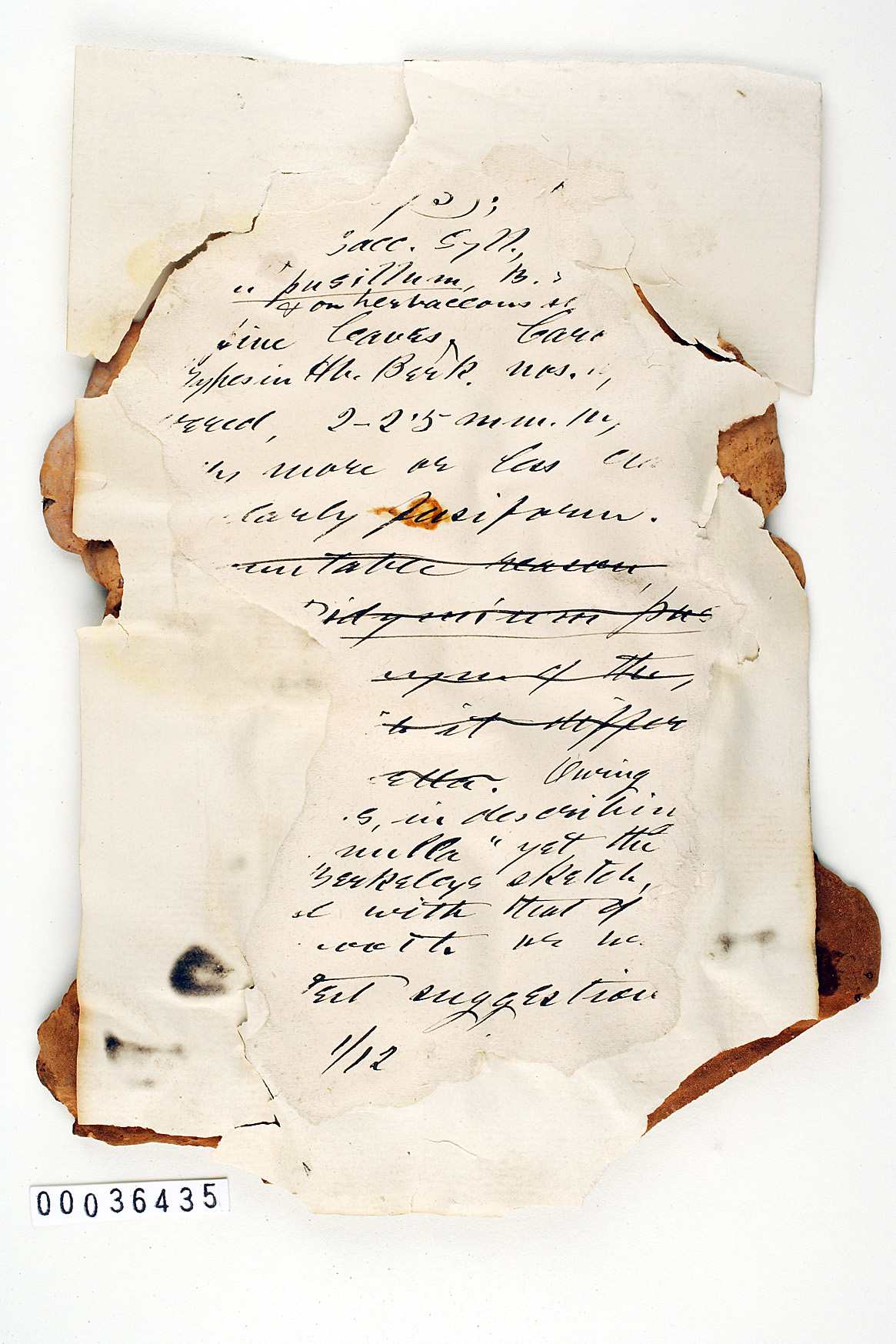 Specimens collected in Nicaragua by American mycologist Charles Leonard Smith in the late 19th century were thought to have been lost for over 100 years.Through records created on the MyCoPortal, Gregorio Delgado and Ondřej Koukol of EMLab P&K (Phoenix, AZ) and Charles University (Prague, Czech Republic), respectively, were able to
Specimens collected in Nicaragua by American mycologist Charles Leonard Smith in the late 19th century were thought to have been lost for over 100 years.Through records created on the MyCoPortal, Gregorio Delgado and Ondřej Koukol of EMLab P&K (Phoenix, AZ) and Charles University (Prague, Czech Republic), respectively, were able to
-- Contributed by Joan Meiners, PhD Student, Ernest Lab, School of Natural Resources and Environment, University of Florida
For my PhD research in Dr. Morgan Ernest's lab at the University of Florida, I am using large datasets of occurrence records of native bees and their habitat associations to try to understand native bee biodiversity and foraging patterns...read more here.

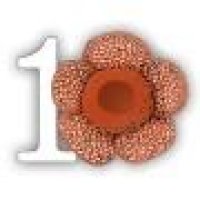 Who could resist a conference where the mascot is a giant bright red Rafflesia flower, where bagpipes serenade the participants, and kilt-wearing and traditional folk dancing are encouraged, along with stimulating science? The 10th International Flora Malesiana Symposium was hosted by the Royal Botanic Garden Edinburgh, Scotland between 11-15 July 2016.
Who could resist a conference where the mascot is a giant bright red Rafflesia flower, where bagpipes serenade the participants, and kilt-wearing and traditional folk dancing are encouraged, along with stimulating science? The 10th International Flora Malesiana Symposium was hosted by the Royal Botanic Garden Edinburgh, Scotland between 11-15 July 2016.
 The 23rd Pacific Science Congress, successfully hosted by Academia Sinica, Taipei, Taiwan brought together scientists from a broad range of fields to discuss progress being made towards a sustainable future in Asia and the Pacific.
The 23rd Pacific Science Congress, successfully hosted by Academia Sinica, Taipei, Taiwan brought together scientists from a broad range of fields to discuss progress being made towards a sustainable future in Asia and the Pacific.
-- Contributed by Lauren Gonzalez
I’m currently a graduate student in the Soltis Lab in the Florida Museum of Natural History, working on Polygonella(Polygonaceae), sometimes called the jointweeds....read more here.
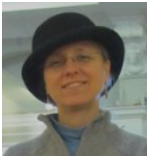
For optimum results, digitization of collections needs to go faster, right? Of course, this includes addressing data quality and completeness.
-- Contributed by Shelley A James
Puerto Rico – warm Caribbean seas, high biodiversity, and coqui frogs. iDigBio was invited to NatureServe’s Biodiversity without Boundaries 2016 meeting in April 2016 to share ideas and resources with members of the conservation community....read more here.
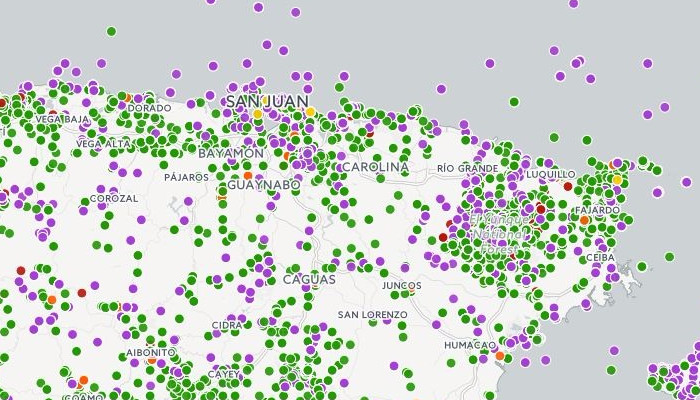
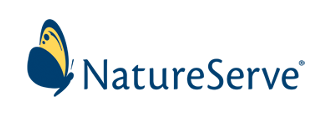 Conservation. Endangered and rare species. Species distribution maps. Habitat and landscape integrity analysis. Observational data.
Conservation. Endangered and rare species. Species distribution maps. Habitat and landscape integrity analysis. Observational data.
Got research data? Need to submit your important data and media associated with biological voucher specimens to a data repository as part of your data life cycle best practices workflow? Are you thinking iDigBio would be the ideal repository for your data?
Although iDigBio is a repository for recordsets of primary biodiversity data of vouchered natural history collections, it is not a "data repository" as defined by most journals. Accepting individual researcher datasets, even those consisting of vouchered, natural history specimen digitized data and media, currently falls outside of the Scope of iDigBio.
Ever wondered where to start with analyzing a large biodiversity data set you've downloaded from iDigBio's portal or the iDigBio API? Wondering what software tools are available for cleaning your collections dataset or running some interesting queries? Finding a local Software Carpentry course is an excellent first step.
-- Contributed by Blaine Marchant
My research for iDigBio addresses ecological and evolutionary questions by utilizing the enormous dataset provided by digitized natural history specimens from across North America. My current project is aimed at investigating the ecological differentiation of polyploid plant species from their diploid progenitor species....read more here.
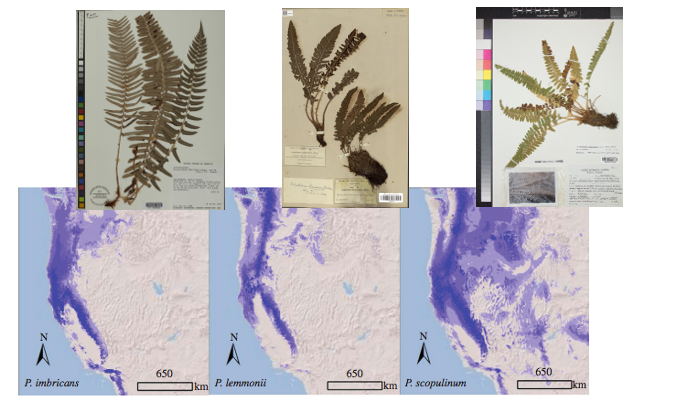
-- Contributed by Andre Naranjo
I am a graduate student at the University of Florida, and a member of the Soltis Lab, working on a genus of scrub mints found only in the southeastern United States....read more here.
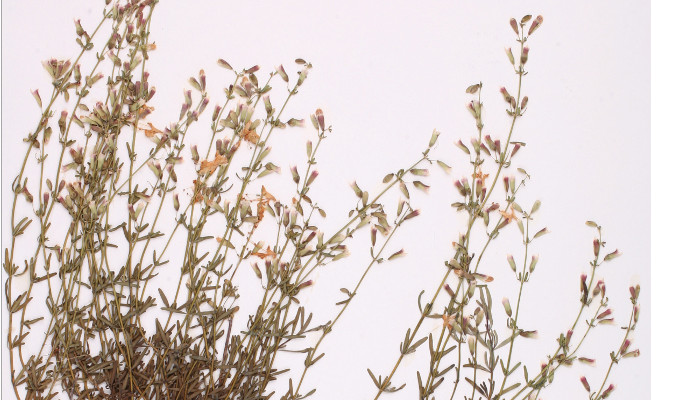
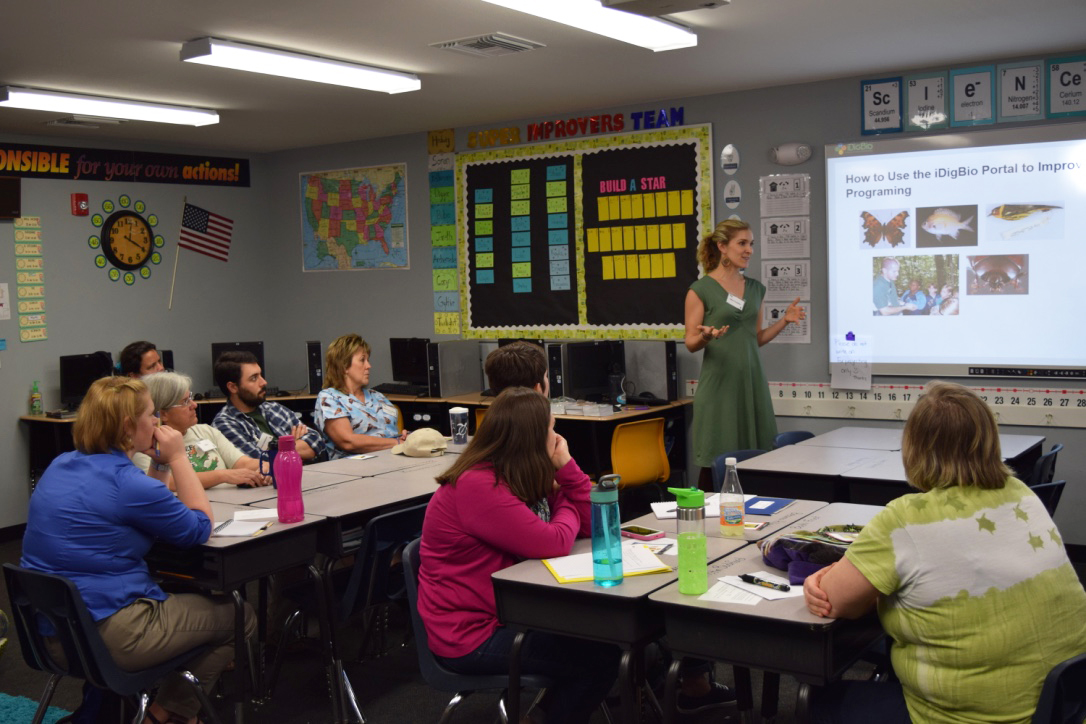 iDigBio's Jillian Goodwin and Molly Phillips traveled to St. Marks, Florida, to participate in the League of Environmental Educators (LEEF) Conference at COAST Charter School from March 18-20, 2016.
iDigBio's Jillian Goodwin and Molly Phillips traveled to St. Marks, Florida, to participate in the League of Environmental Educators (LEEF) Conference at COAST Charter School from March 18-20, 2016.
Permanent, globally unique identifiers are increasingly critical for the efficient analysis, publishing, tracking and reuse of dig data, including biological, geological and ecological information. Practical Hacking On Identifiers at BiOSphere2 (PHOIBOS2) took place at The University of Arizona’s Biosphere 2, Oracle, Arizona, from Feb 17-19, 2016. The Biosphere2 was an ideal location for a workshop - remote, spiny vegetation,
iDigBio is pleased to announce the upcoming Symposium "Data and digital images: progress, tools and scientific need for digitizing Pacific biological specimen collections" at the 23rd Pacific Science Congress: Science, Technology and Innovation, June 13-17, 2016 in Taipei, Taiwan.
We invite presentations from students and professionals about the digitization of natural history collections data in the Asia-Pacific region and the use of mobilized collections data for research.
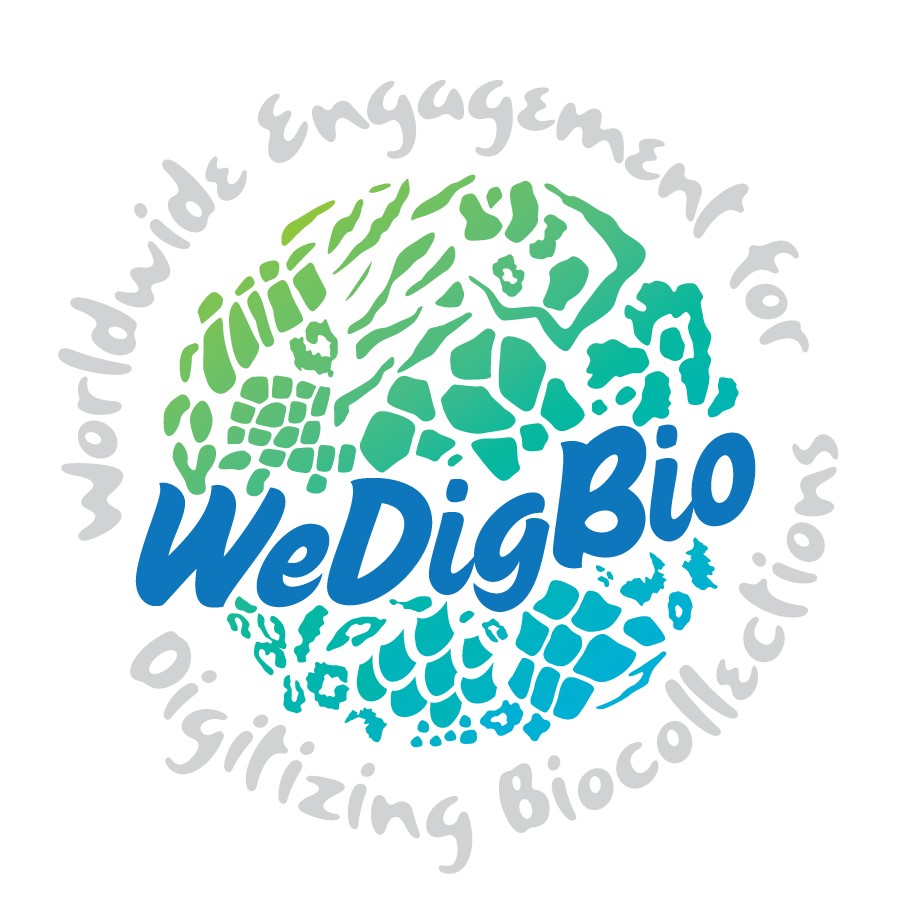 During its inaugural year, the Worldwide Engagement for Digitizing Biocollections Event, WeDigBio 2015, engaged thousands of citizen scientists from >50 countries in transcribing specimen labels over four days.
During its inaugural year, the Worldwide Engagement for Digitizing Biocollections Event, WeDigBio 2015, engaged thousands of citizen scientists from >50 countries in transcribing specimen labels over four days.